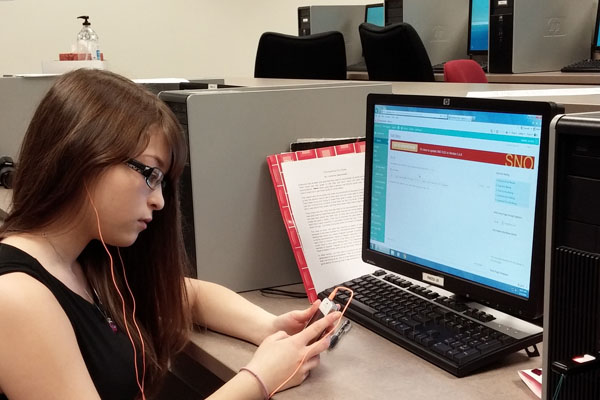For What It’s Worth: Fighting the feed
February 17, 2014
Inspired by all the little freshmen reading Feed by M. T. Anderson, the Wild Economist today has decided to talk about the costs, benefits, and such related to the endless web of technology we find ourselves caught in every day.
Now, the feed can take many forms: communication, advertising, or planned obsolescence. In some situations, it makes things convenient. E-mail is faster than mailing a letter, for instance, and texting is less time-consuming than talking on the phone. The feed creates better tools, too. Graphing calculators are certainly more helpful than using an abacus (although the latter might be more fun).
Regardless of your personal preferences, it’s fairly clear that in today’s society you practically need to be connected to the feed. Today, it’s not uncommon for school projects to require the use of powerpoint slides, online forums, Internet research or video editing techniques, simply to complete the assignment. Clubs and some classes use the Remind101 texting service to let you know about meetings and projects, which you will miss if you don’t have texting. Technology skills make you more marketable for jobs, and allow you to be more noticeable, for good or bad, to colleges.
On the other hand, we’ve all seen the amazing addictive or otherwise harmful powers of the feed. Texting and driving is a tragic example of this. Cyberbullying is another. People whose entire lives are dictated by their phone, who cannot function if it’s broken/lost/stolen, and who need their thumbs amputated because of excessive texting, are also being corrupted by the feed.
When you look at all the costs it seems inconceivable that such things are hailed as the defining feature of our generation. Then you look back at everything they allow us to do and the exact opposite is true. To be honest, this is the duality intrinsic in everything, and this is where we need to look at the economics of the situation, the costs and benefits, in order to balance ourselves.
The idea is to get to the point where the costs of using technology are equal to the benefits, but not greater than them. Sometimes with technology it’s hard to tell where the line should be drawn. You have probably experienced the feeling of planning to look up one thing online, and then while you’re there you should check this one other site… and then three hours later you’re staring at something about pancakes and wondering what sort of over-hungry beast lives in your computer and has just masticated a large chunk of your life.
Or maybe your cost-benefit struggle is more along the lines of acquiring new technology. First it’s a phone, then it’s a phone with Internet access and texting, then it’s a better one, and a smaller one, and pretty soon you’ve got a microchip in your brain. Fantastic.
So when do you stop? When does convenience become a hindrance, and lots of rapid communication become a loss of personal identity?
When you can’t think.
When clicking a link is so easy that we don’t bother to stop to think if we should be doing something else, and we don’t bother to consider the potential costs of anything.
As with many things, I think the closest we can get is a quote by Dr. Spock.
“Practical, Captain? Perhaps. But not desirable. Computers make excellent and efficient servants, but I have no desire to serve under one.”
The feed is convenient as long as we are in control. When it starts dictating our entire lives, when we are so completely dependent upon it that we cannot function without it, that’s when things start going from “The Most Awesome Thing Ever” to “We’re stuck in a Dystopia.”




